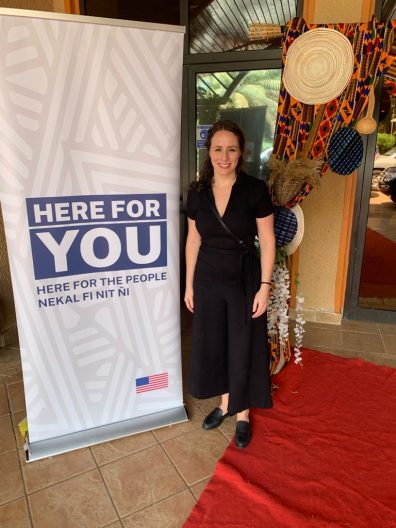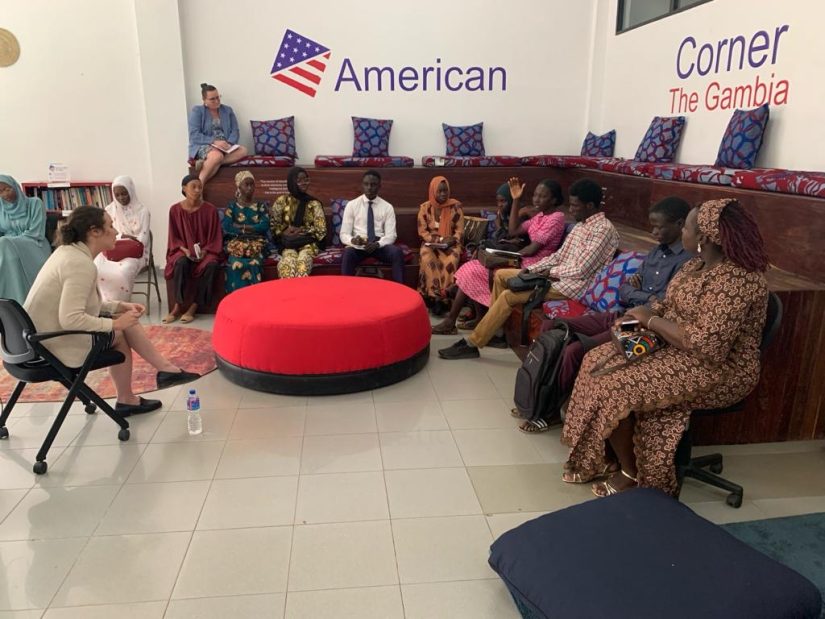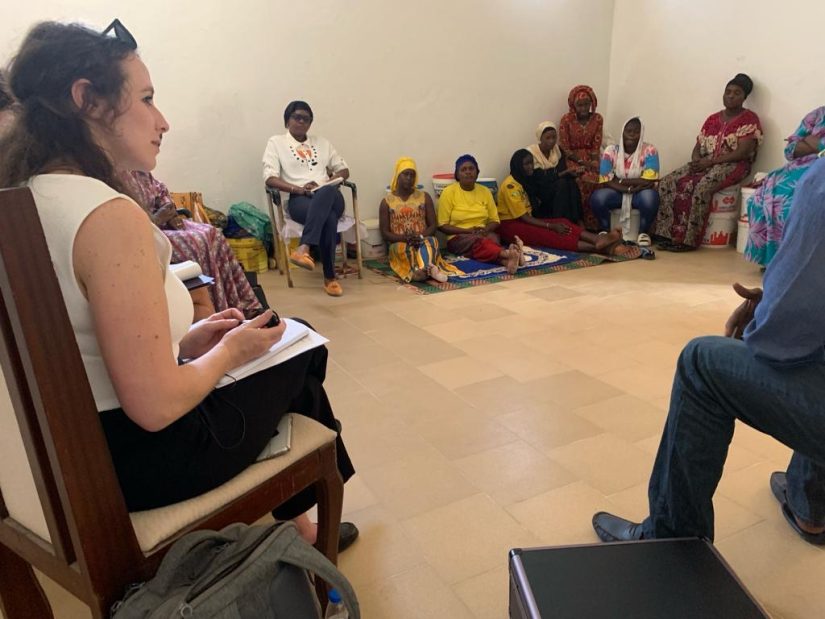Science diplomacy at work: tackling illegal, unreported and unregulated fishing
In her role as a US Science Envoy, SAFS Assistant Professor Jessica Gephart was selected as one of seven distinguished scientists in January 2023, with this position extended through 2024. Through this role, Jessica is part of a team which helps inform various US institutions and the scientific community about opportunities for science and technology cooperation abroad.

“Science diplomacy creates an opportunity for knowledge exchange across borders and allows the US to model scientific independence,” Jessica shared. “Although I travel with members of the US State Department, I attend these meetings as a private citizen and my opinions are my own. It’s a great opportunity to learn from the local embassy staff and in-country groups working on aligned issues and hear other perspectives of the issues experienced on the ground”.
Chosen for her expertise in illegal, unreported, and unregulated (IUU) fishing and trade and how this intersects with international supply chains, Jessica recently traveled to the West African countries of Senegal and Gambia in January 2024 with a more local focus in mind: the processing of small pelagic fish into fishmeal.

Why is this such a major issue? Sardinella, the primary species going into fishmeal in the region, is an important local food source and has reportedly doubled in price and become scarce. With fishmeal primarily used for aquaculture, estimated at 86%, this fishery issue is having a big impact not only on consumption, but on local fish processors and traders, who are also often women. Currently working on a paper looking into this exact issue, Jessica is delving into who benefits nutritionally from aquaculture production systems.

During her visit to Dakar, Senegal and Banjul, Gambia, Jessica was able to meet with a wide range of local people including students, conservation groups, fisher organizations, women processors, and fisheries managers. “There is a lot of enthusiasm on the ground to tackle issues of overfishing and associated impacts on availability, prices, and supply chain distribution,” Jessica shared. “When it comes to combating these issues is not a lack of willing people with the know-how, but instead resource constraints”. Issues such as limited capacity to patrol waters, inadequate systems for reporting fishing interactions, and a lack of vessels and equipment for monitoring are some key areas of constraint.

The need for regional coordination to organize priorities around fishery management, such as the nutritional use of small pelagic fish, is something Jessica noted would be useful during her trip. Regional coordination would also have positive impacts on negotiating foreign fishing access, support for training of local people, and introducing regional stock assessments. “Fish don’t recognize our political boundaries, necessitating regional cooperation for their sustainable management, which will only become more urgent as fish stocks shift under climate change,” Jessica said.
This was Jessica’s first trip in her role as a US Science Envoy, with her next trip taking her to Greece in April 2024 for the Our Ocean conference.
